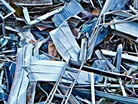EV Recycling Driven By Tata Steel, Nucor and Dowa Holdings

Major players dominate the ferrous metals market, which is pivotal in driving industry growth.
The projected growth of the recycling ferrous metals market is from US$ 551.9bn in 2024 to US$767.9bn by 2029, at a CAGR of 6.8%.
- ArcelorMittal (Luxembourg)
- Nucor (US)
- CMC (US)
- Sims Limited (Australia)
- Aurubis AG (Germany)
- Dowa Holdings Co., Ltd. (Japan)
- Tata Steel (India)
- Radius Recycling, Inc. (US)
- European Metal Recycling Ltd. (UK)
- Upstate Shredding – Weitsman Recycling (US)
Those leading the ferrous metal market are instrumental in advancing the Compound Annual Growth Rate (CAGR) by volume during the forecast period.
Recycling ferrous metals
Recycling ferrous metals involves collecting scrap from construction and demolition sites as well as the automotive and manufacturing sectors.
The recycling process conserves natural resources, reduces energy consumption and minimises greenhouse gas emissions compared to producing new metals.
Importance of ferrous metals
Renowned for their magnetic properties and high tensile strength, ferrous metals are crucial in various applications, including:
- Construction: Essential for structural frameworks and reinforcement bars
- Automotive industry: Integral to car bodies and engines
- Industrial machinery and tools: These are important for manufacturing durable machinery.
Automotive industry: A significant contributor
The end users' focus on sustainability drives the rise in EV adoption. According to the Institute of Scrap Recycling Industries, 670,000 EVs were sold in the first half of 2023, significantly impacting the automotive end-use sector in the metal recycling market.
EVs need substantial metals such as steel, aluminium and copper for batteries, motors and body structures. Thus, automakers are prioritising recycled materials to reduce environmental impact.
Automakers are incorporating recycled metals in vehicle production to:
- Conserve resources
- Reduce greenhouse gas emissions
- Lower energy consumption and pollution associated with new metal extraction and processing
These efforts support the circular economy and fuel the demand for recycled metals, encouraging advancements in recycling processes and technologies.
T.V. Narendran, CEO and Managing Director of Tata Steel, states: "As the automotive industry shifts towards electric vehicles, the demand for high-quality recycled steel becomes crucial.
"Tata Steel is committed to providing sustainable steel solutions that reduce environmental impact and support the circular economy."
Metal recycling market in Europe
The projection is that Europe will be the second-largest region in terms of value during the forecast period. Several factors drive the metal recycling market in Europe:
- Stringent environmental regulations: EU policies aim to reduce waste and promote recycling through directives on waste management and recycling targets
- Sustainability and circular economy: Growing environmental awareness among businesses and consumers boosts demand for recycled metals
- Technological advancements: Improved recycling technologies enhance efficiency, making it easier to recover high-quality metals from scrap
- Industrial and manufacturing sectors: Robust industries generate substantial metal scrap, recycled into new products
- Economic benefits: Recycling metals is often more cost-effective than mining and processing new ores, providing financial incentives for businesses.
Overall, the combination of strict regulations, a focus on sustainability, technological advancements, industrial demand and economic benefits drives the metal recycling market in Europe.
Tata Steel's Corporate Communications highlights that its "advanced recycling processes ensure that we can meet the growing needs of the EV sector, reducing the need for new raw material extraction and minimising the carbon footprint associated with steel production."
It reinforces Tata Steel's commitment to sustainable practices and its role in the evolving landscape of the metal recycling industry.
******
Make sure you check out the latest edition of Manufacturing Digital and also sign up to our global conference series - Procurement & Supply Chain 2024 & Sustainability LIVE 2024
******
Manufacturing Digital is a BizClik brand.
- MHI & ArcelorMittal: Steel Carbon Capture & RecyclingSustainability & ESG
- Samsung Biologics/Kurma Partners manufacturing partnershipTechnology
- ArcelorMittal to provide steel for restoration of Notre-Dame de ParisSmart Manufacturing
- ArcelorMittal Tailored Blanks opens new steel factory with robotics technologyLean Manufacturing


